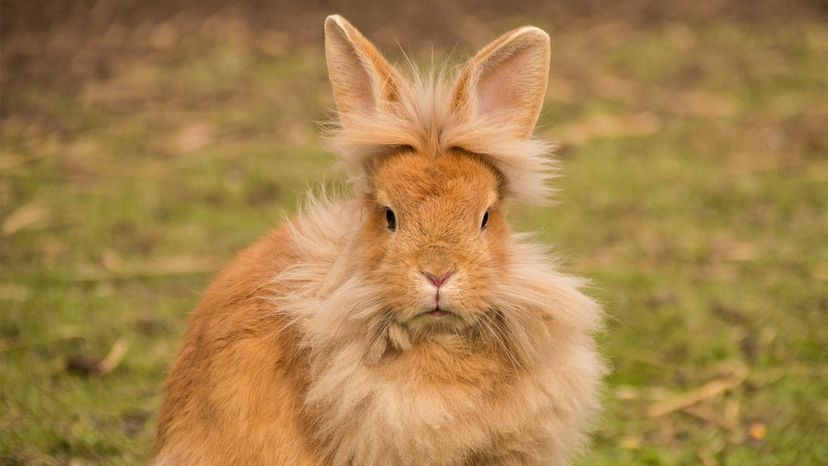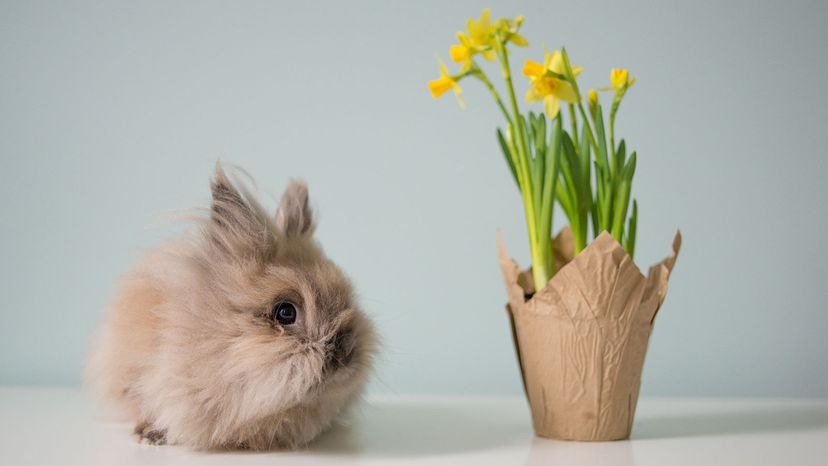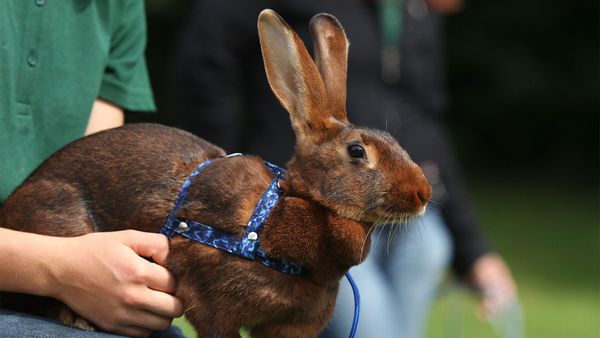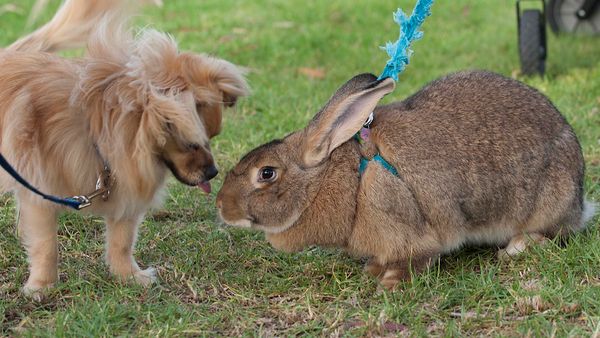
Arguably one of the most magnificent things about lionhead rabbits is that they have a lot of hair. Like a lot, a lot. It's one of the reasons people are attracted to them as pets. After all, who wouldn't want a cuddly little lion hopping around the house?
But, with great hair comes great responsibility. To prevent knots and tangles, you'll need to brush a lionhead rabbit's fur at least three times a week. In the spring, when rabbits molt by shedding the excess hair they've accumulated, daily brushing will be de rigueur. As you keep your rabbit's fur tangle-free, you'll also help them avoid a potentially deadly intestinal blockage: Rabbits naturally groom themselves and swallow fur, but too much will gum up their inner workings.
Advertisement
Lionhead rabbits are a dwarf breed that can live for eight to 10 years; they usually weigh between 2.5 and 3.5 pounds (1.1 to 1.6 kilograms) and sport 3-inch (nearly 8-centimeter) ears. There are two types of lionhead rabbits, and while both have an adorable fur mane, one is a "single" mane and one is a "double" mane. Single mane lionhead rabbits carry a solitary mane gene, which means that hair around the head, ears and chin (and sometimes the chest or rump) will remain wispy and often not last past adolescence. Double mane lionhead rabbits, however, have a thick mane encircling the head that they retain for life. They also may have a woolly flank, sometimes called a "skirt."



